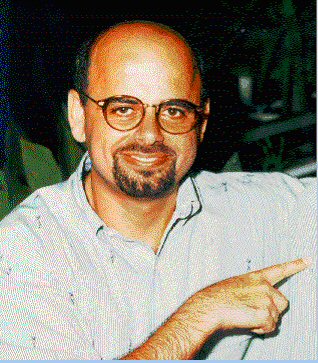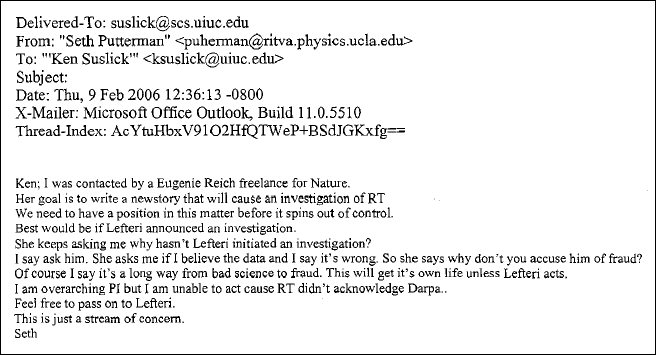First Purdue Replication
In April 2002, a month after the Taleyarkhan group published its research in Science, Tsoukalas put together a group to independently replicate the Oak Ridge nuclear cavitation experiments. The group had a few meetings, and then two graduate students, Anton Bougaev and Joshua Walter, began working on experiments, primarily supervised by Martin Bertodano, a professor in the school. From July 2002 to January 2003, Bougaev and Walter’s experiments were unsuccessful. Either no sustained cavitation was observed, or the chambers broke.
In mid-June 2003, Taleyarkhan agreed to let Tsoukalas send Bougaev and Walter down to Oak Ridge to learn what they could directly from Taleyarkhan and his team. When Bougaev and Walter returned, they brought back with them the required skills as well as chambers made by the glassblowers at Oak Ridge.

Lefteri Tsoukalas
During the summer of 2003, Tsoukalas convinced Taleyarkhan to leave his government job in Tennessee and accept a professorship at Purdue. At the same time, Tony Tether, the head of the Defense Advanced Research Projects Agency, invited Taleyarkhan to work in Washington, D.C., as a program manager for two-to-four years.
Purdue administrators, as well as Tsoukalas, agreed to defer the start of Taleyarkhan’s duties at Purdue while he worked at DARPA for two years, until the fall of 2005. The plan was that Tsoukalas, along with Bertadano and Tatjana Jevremovic, another professor in the school, would take charge and ownership of the nuclear cavitation research while Taleyarkhan was gone. He moved from Tennessee, but as things happened, family health issues precluded Taleyarkhan from leaving Indiana, and he had to decline the DARPA invitation.
Taleyarkhan’s employment at Purdue began in September 2003. He was given an office in the Nuclear Engineering building but was not given a lab. Not until May 2004 did a new off-campus lab space open up for him, and he resumed his own experimental research. In the interim, Taleyarkhan gave advice to Tsoukalas’ group, wrote proposals, and worked on committees. He began teaching assignments in the spring of 2004.
On Sept. 18, 2003, Bougaev and Walter performed an experiment using the Oak Ridge chambers but using normal acetone, one of the scientific controls. JaeSeon Cho, one of the Taleyarkhan group’s members was there on loan from Oak Ridge to help them out. They observed successful cavitation, and it was stable. The next step, now that they had a chamber that would properly support the cavitation, was to replace the normal acetone with deuterated acetone and see whether they could induce nuclear reactions.
On Sept. 19, 2003, they did just that. According to raw data, draft reports, and internal correspondence from Purdue obtained by New Energy Times, Tsoukalas’ group measured confirmatory evidence of nuclear cavitation. This replication, along with the data measured by the Taleyarkhan group, was confirmation of a new class of room-temperature nuclear reactions. The experiment on Sept. 19 was a major achievement. Tsoukalas saw it, and Tsoukalas knew it. Continue reading »


